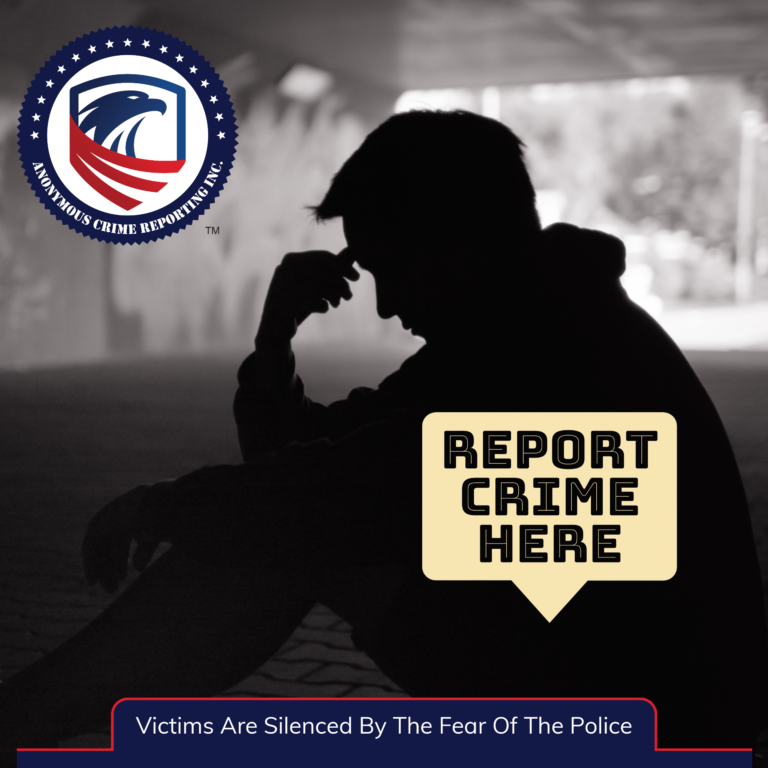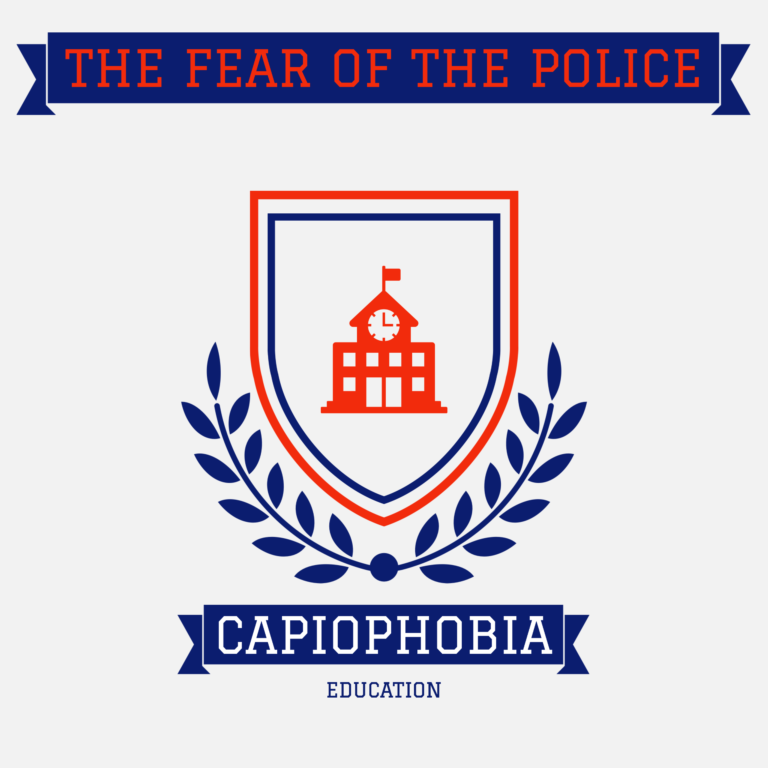About Us
The Misconception of Capiophobia
Contrary to common belief, people that have capiophobia does not mean that person has committed a crime. Sometimes, victims of police brutality can develop a fear of the police. Individuals who are frightened by the police refuse to interact with law enforcement. Rejecting to communicate often occurs due to a person losing trust in police officers. Anonymous crime reporting programs are essential. They act to open a communication pathway between people living with capiophobia and law enforcement officers. Victims of brutality, racial discrimination, and discriminatory treatment can learn how to report a crime anonymously with our trusted resources.Our Mission Statement
We aim to provide capiophobia awareness and self-help resources to sufferers of capiophobia. By bridging the gap of communication between capiophobia sufferers and law enforcement, we hope to connect sufferers of capiophobia. Implementing methods in which the capiophobe can communicate in ways to minimize unpleasant capiophobia symptoms is fundamental. Useful communication tools are located on our website for anonymous crime reporting purposes.Our Vision Statement
Achieving global awareness and education of capiophobia with churches, schools, corporate organizations, and government organizations is our long-term goal. By bringing a higher awareness of capiophobia to the general public, we reduce racial discrimination and prejudiced treatment of civilians.About the Founder
My name is Mihaela Dorca, and I am a human rights activist, a communist survivor and a first-generation immigrant of the United States. I am a Liberty University Alumni with a Bachelor of Science in Business Administration: Finance. I am passionate about helping others, having served in the healthcare service industry for nearly two decades. With great enthusiasm, I can dedicate my time to managing the success of Anonymous Crime Reporting Inc., a non-profit organization. I am privileged to help the organization’s mission and raise awareness of the fear of the police and its adverse effects on communication with law enforcement. In 1983, my family sought refuge and fled to America to escape Romania’s communism and pursue a safer future. My family’s traumatic experiences with the police in Romania resulted in dealing with the fear of the police. During that period, I observed people having little trust in law enforcement within my community. Many of my relatives and friends fled to America to escape communism. As victims of police brutality and public corruption, the journey to freedom was life-changing. There were many brutal encounters with police that my family and refugee colleagues experienced. During the dictatorship of Nicolae Ceausescu, the Romanian police called the “Securitate” helped turn the country into an open prison. The result involved coming across police brutality, harassment, and discriminatory treatment. Romanian law enforcement officers and the military began targeting citizens due to faith or political affiliation. Sadly, public corruption and abusive police experiences were part of what Romanians felt during communism. Romanian citizens had learned to accept this treatment as normal cultural behavior in Romania during Nicolae Ceausescu’s presidency.
Redefining the Fear of Police
Many years after immigrating to America, my refugee network community’s fear of the police began to wear off. Years later, trusting the local police in a new country began to replace prior feelings of fearing the police. This eventually enabled a new cultural norm to replace the old ways of perceiving the police within my Romanian community. Police brutality, discrimination, and public corruption can disturb an individual’s perception of the police as figures of safety and security. It is a common misconception that only criminals experience capiophobia. Please visit all our web links and share our organization’s mission with others.The Misconception of Capiophobia
Contrary to common belief, people that have capiophobia does not mean that person has committed a crime. Sometimes, victims of police brutality can develop a fear of the police. Individuals who are frightened by the police refuse to interact with law enforcement. Rejecting to communicate often occurs due to a person losing trust in police officers. Anonymous crime reporting programs are essential. They act to open a communication pathway between people living with capiophobia and law enforcement officers. Victims of brutality, racial discrimination, and discriminatory treatment can learn how to report a crime anonymously with our trusted resources.
Our Mission Statement
We aim to provide capiophobia awareness and self-help resources to sufferers of capiophobia. By bridging the gap of communication between capiophobia sufferers and law enforcement, we hope to connect sufferers of capiophobia. Implementing methods in which the capiophobe can communicate in ways to minimize unpleasant capiophobia symptoms is fundamental. Useful communication tools are located on our website for anonymous crime reporting purposes.
Our Vision Statement
Achieving global awareness and education of capiophobia with churches, schools, corporate organizations, and government organizations is our long-term goal. By bringing a higher awareness of capiophobia to the general public, we reduce racial discrimination and prejudiced treatment of civilians.
About the Founder
My name is Mihaela Dorca, and I am a human rights activist, a survivor of communism and a first-generation immigrant of the United States. I am a Liberty University Alumni with a Bachelor of Science in Business Administration: Finance. I am passionate about helping others, having served in the healthcare service industry for nearly two decades. With great enthusiasm, I can dedicate my time to managing the success of Anonymous Crime Reporting Inc., a non-profit organization. I am privileged to help the organization’s mission and raise awareness of the fear of the police and its adverse effects on communication with law enforcement.
In 1983, my family sought refuge and fled to America to escape Romania’s communism and pursue a safer future. My family’s traumatic experiences with the police in Romania resulted in dealing with the fear of the police. During that period, I observed people having little trust in law enforcement within my community. Many of my relatives and friends fled to America to escape communism. As victims of police brutality and public corruption, the journey to freedom was life-changing.
There were many brutal encounters with police that my family and refugee colleagues experienced. During the dictatorship of Nicolae Ceausescu, the Romanian police called the “Securitate” helped turn the country into an open prison. The result involved coming across police brutality, harassment, and discriminatory treatment. Romanian law enforcement officers and the military began targeting citizens due to faith or political affiliation. Sadly, public corruption and abusive police experiences were part of what Romanians felt during communism. Romanian citizens had learned to accept this treatment as normal cultural behavior in Romania during Nicolae Ceausescu’s presidency.

Redefining the Fear of Police
Many years after immigrating to America, my refugee network community’s fear of the police began to wear off. Years later, trusting the local police in a new country began to replace prior feelings of fearing the police. This eventually enabled a new cultural norm to replace the old ways of perceiving the police within my Romanian community.
Police brutality, discrimination, and public corruption can disturb an individual’s perception of the police as figures of safety and security. It is a common misconception that only criminals experience capiophobia. Please visit all our web links and share our organization’s mission with others.
Learn more about our Capiophobia Awareness and Prevention Program or our Saved By The Kindness Bell Program here.
Report Crimes In Your School, Church, Workplace, Or Neighborhood Anonymously.
You can make a difference by reporting suspicious criminal activity to your local authority. Suppose you are afraid of the police or law enforcement and don’t want to report a crime directly to your local police authority. In that case, you can choose to report suspicious criminal activity safely by using any of our domestic or international privately owned anonymous crime reporting resources below.
Reporting anonymous crimes often leads to a more honest report of the crime from people living with capiophobia because they are not interacting directly with law enforcement, the trigger of the phobia itself.




